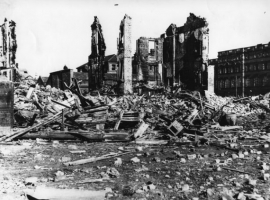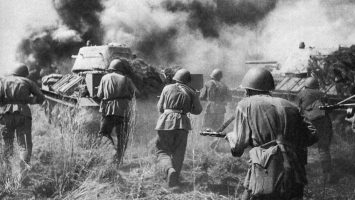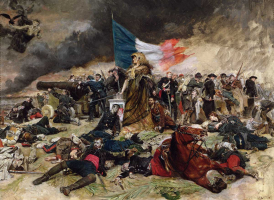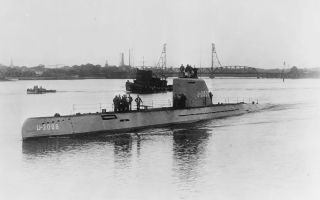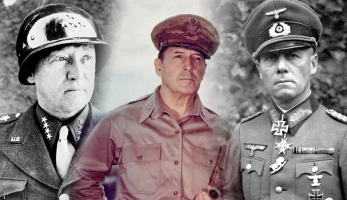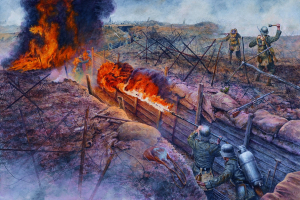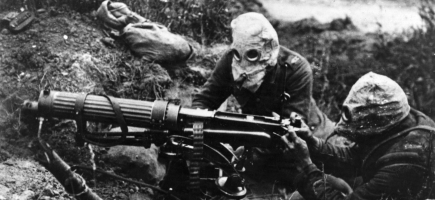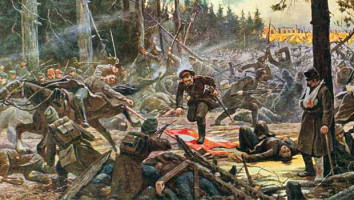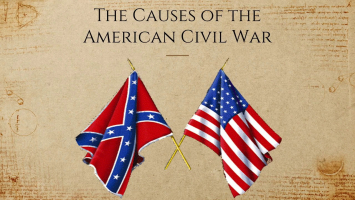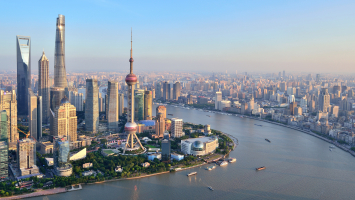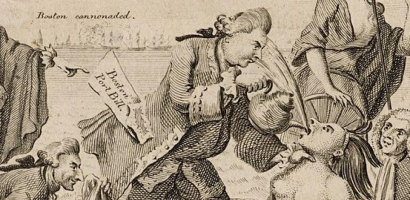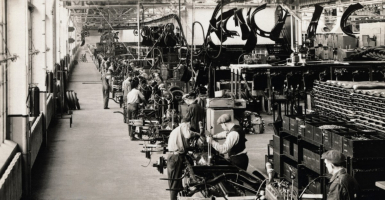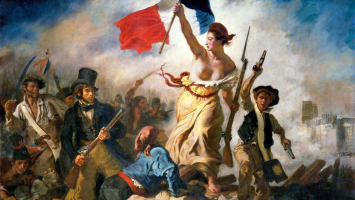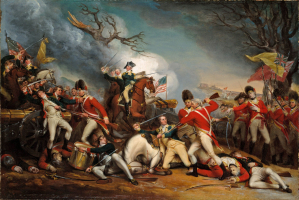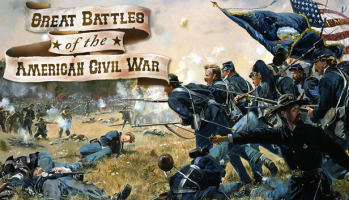Top 5 Major Causes of World War II
World War II is one of the great wars in human history. At the end of the war, there is no winner, only suffering. So what was the main cause of World War II? ... read more...Let's find out with Toplist!
-
The Versailles Treaty became operative on January 10, 1920. The Treaty formalized the terms of peace between the Allies and Germany and was imposed on the Central Powers by the Allied and Associated Powers, the winners of World War I.
It is generally acknowledged that the Treaty of Versailles was a failure because it imposed harsh penalties and irrational demands on Germany for its misdeeds, including large reparations payments and demilitarization. The Versailles Deal was fundamentally not a peace treaty but rather the archetypal instance of retaliation. Given the destruction caused by the war, it is simple to understand why someone would want to exact retribution.
The lengthy accord eventually did not satisfy any country. Germany was compelled by the Versailles Treaty to cede all of its foreign territories in China, the Pacific, and Africa to the Allied states, return Alsace and Lorraine to France, and transfer territory to Belgium, Czechoslovakia, and Poland. It also had to consent to the demilitarization and Allied occupation of the area around the Rhine River, as well as dramatically cut back on its military. Most crucially, Article 231 of the treaty made Germany solely responsible for starting the war and required it to pay the Allied nations billions in reparations.
Since the Weimar Government signed the Treaty of Versailles that put an end to World War One, it became known as a failure. By ending the war too soon, many nationalists thought the government had betrayed Germany and sold it to its adversaries. When the leaders of the United States, Great Britain, and the Soviet Union gathered in 1945 at Potsdam, they attributed the need for another major fight to the Versailles Treaty's shortcomings. It is one of the major causes of World War II.
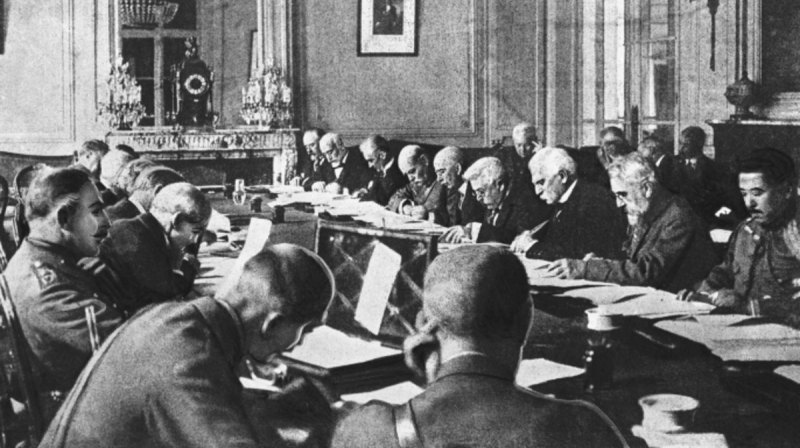
Photo: History.com 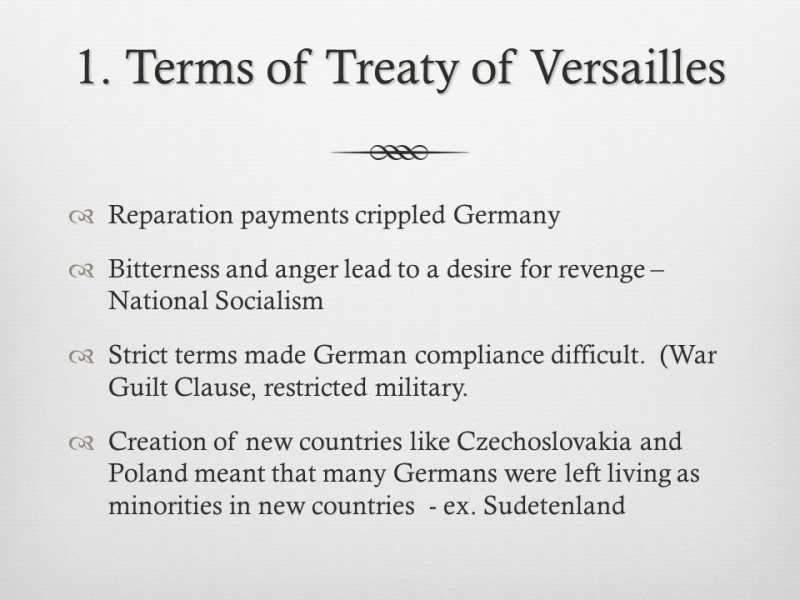
Photo: slideplayer.com -
Any efforts to create a post-war society that was more transparent, cooperative, and peaceful would be undermined by the start of the Great Depression. When the American stock market crashed in 1929, loans sent to Germany under the Dawes Plan were completely recalled, not just suspended. A wave of bank failures throughout Central Europe, including the total collapse of Germany's banking system, began in 1931 with the fall of the Kreditanstalt, Austria's largest bank, as a result of the restriction of money and credit.
Unlike nations like Germany, Italy, and Japan, the British, French, Soviets, and Americans had sizable colonial empires to which they could turn for access to critically needed raw materials. As global trade declined, more regional trade blocs emerged, with the "have" countries constructing these blocs along colonial lines, like the British Imperial Preference system.
Despite admirable intentions for peace, the Paris Peace Conference's conclusion, which blamed Germany alone for starting World War I, did more to fuel animosity. The Great Depression and the ensuing economic protectionism would later act as a catalyst for antagonism to manifest itself in the formation of the Nazi Party and rising imperialist ambitions among world powers. The outbreak of World War II was simply a matter of time after those little imperialist successes.
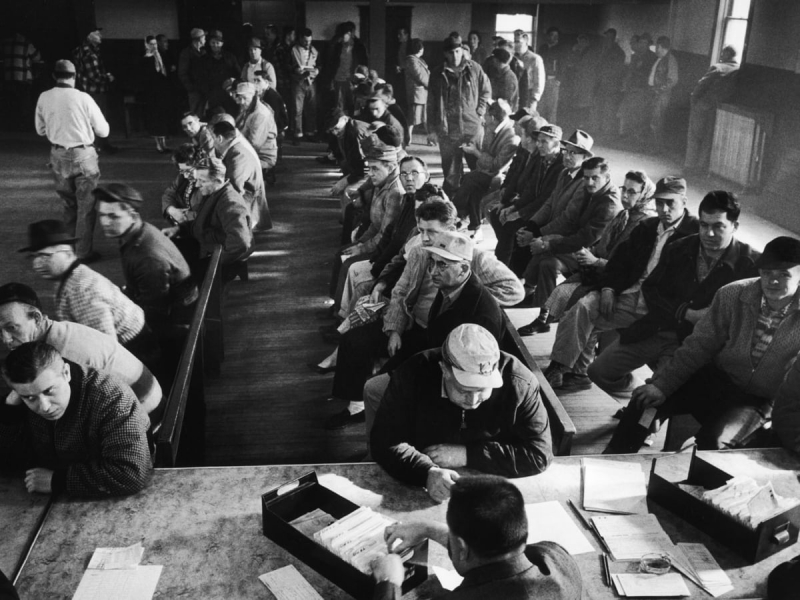
Photo: history.com 
Photo: gnews.org -
With actors on the extreme right and left claiming large swaths of political ground, Europe emerged from World War One as a very different continent. Hitler recognized Stalin as a significant potential foe and was concerned about Germany becoming territorially trapped between the Soviet Union in the east and a Bolshevik Spain, together with a leftist French government, in the west.
In order to strengthen the right-wing influence in Europe, Hitler chose to interfere in the Spanish Civil War while also testing the efficiency of his new air force and the Blitzkrieg strategies it could support. During this period, Nazi Germany and Fascist Italy became closer, with Mussolini eager to uphold European rights and secure Italy's position as the first country to profit from German expansionism.
In November 1936, Germany and Japan ratified the Anti-Comintern Pact. Following the Wall Street Crash, the Japanese developed a growing mistrust of the West and had similar aspirations to the Nazis in the east of Europe to conquer China and Manchuria. The Nazi-Soviet non-aggression pact, which was struck in August 1939, appears to have been the most improbable diplomatic deal ever. The two powers divided the 'buffer zone' they believed to have between them in Eastern Europe with this action, which opened the door for the German invasion of Poland.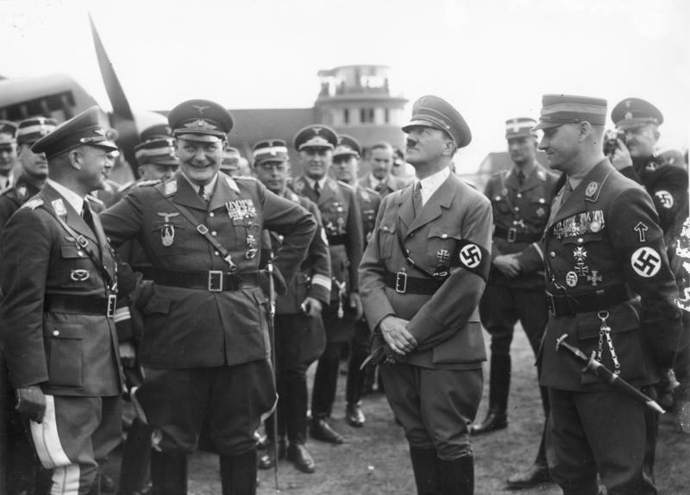
Photo: historyhit.com 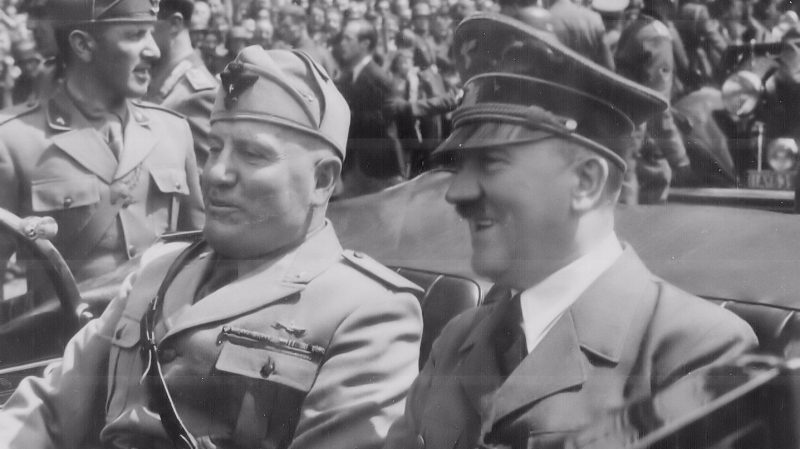
Photo: thoughtco.com -
While Germany's foreign policy was crucial in the onset of the Second World War, other nations' unwillingness or incapacity to respond also played a significant influence. France and Britain were both in weak political and economic positions as a result of the First World War. This implied that they were frequently unable or unwilling to adequately repel German aggression.
The Treaty of Versailles and its consequences for Germany, in particular, were perceived as being severe by Britain. Britain yearned to prevent another world war after the First World War's devastation. As a result, from 1933 to 1939, Hitler's aggressive foreign policy was met with an appeasement strategy. Hitler's confidence increased as a result of this program, and his actions grew increasingly brazen.
The United States and the Soviet Union both had significant roles in the start of the Second World War outside of Europe. Both nations adopted more isolationist policies in the years leading up to 1939, staying as far away from global politics as they could.Together, these elements diminished the likelihood that Nazi Germany would face an effective challenge before the Second World War. It implied that Hitler could grow steadily more self-assured without worrying about reprisals or significant action from other powers.
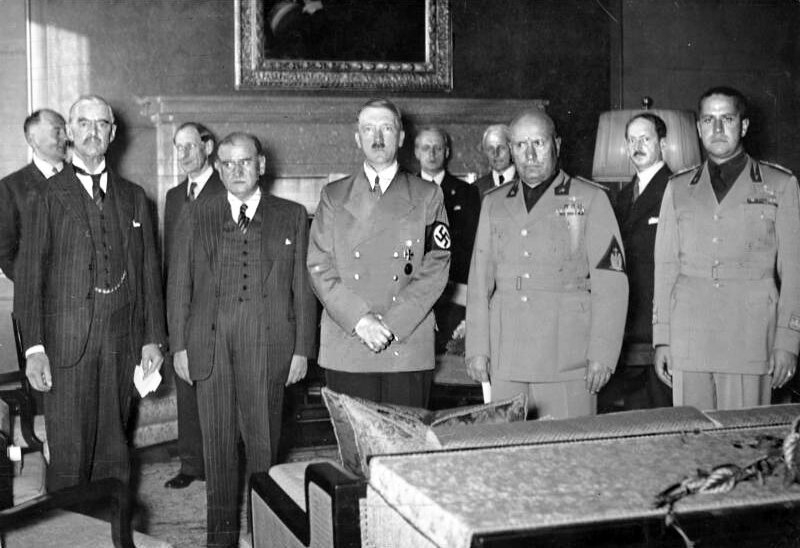
Photo: generalassembly.ca 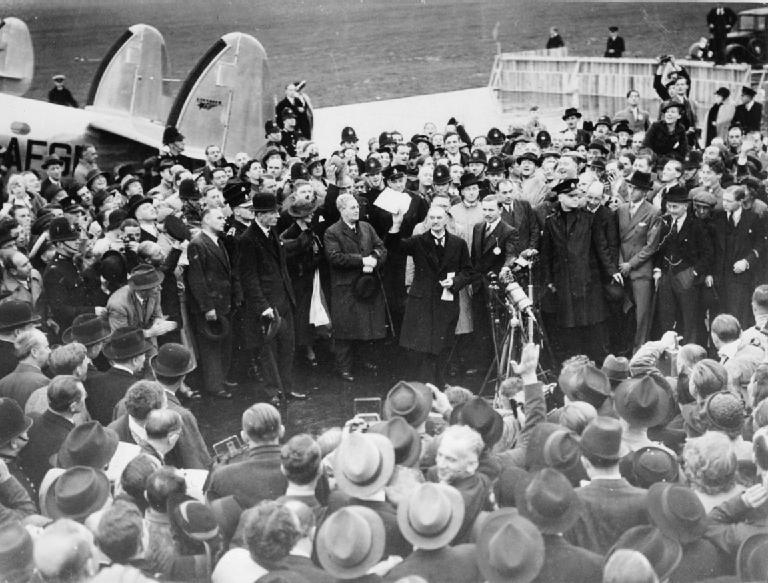
Photo: historytoday.com -
New alliances were formed all over Europe during the 1930s. Italy and Germany, who both provided armed backing to the nationalist rebels opposing the democratic government, were brought together by the Spanish Civil War (1936–1939). Italy and Germany had not previously cooperated militarily, and in 1934, Italy stopped Germany from annexing Austria.
However, after the Spanish Civil War, ties between the two nations strengthened. Italy and Germany signed the Rome-Berlin Treaty in October 1936. The Anti-Comintern Pact, an anti-communist agreement, was struck between Japan and Germany the following month, in November 1936. Italy ratified this treaty in 1937.
In 1940, the three nations turned these pacts into a formal military alliance. The Axis Powers were the collective name given to the nations that made up this coalition. The formation of a rival military alliance with the Allies, when paired with Germany's assertive foreign policies, heightened the tense situation. Should any of the signatories come under assault by a country that is not currently at war, the Pact provides for mutual support. This formalization of the alliance was intended to make "neutral" America second-guess its decision to enter the conflict on the side of the Allies.
The two zones of influence were acknowledged by the Pact as well. Japan was given dominance over "Greater East Asia," while acknowledging "the leadership of Germany and Italy in the development of a new order in Europe". It is one of the main causes of World War II.
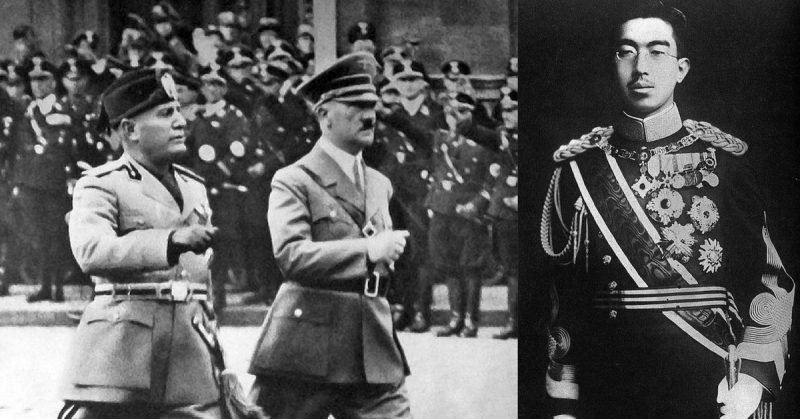
Photo: warhistoryonline.com 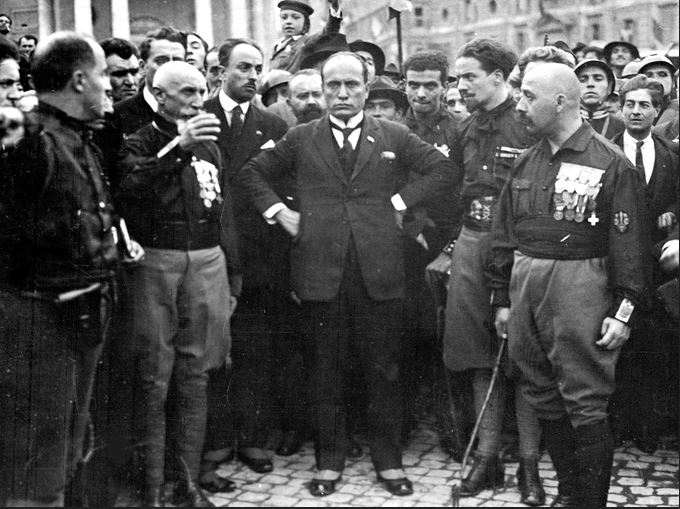
Photo: brewminate.com







